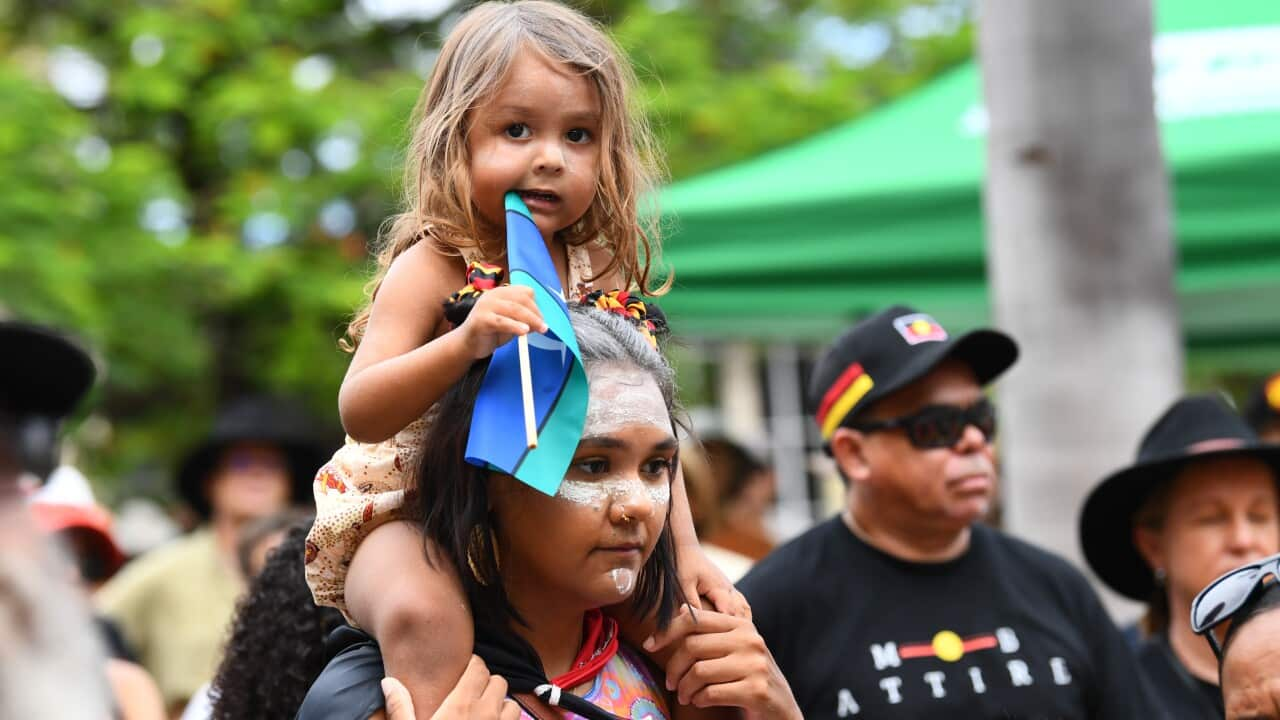When I first arrived in Australia, my vocabulary was limited, my grammar shaky, and my accent thick. Sometimes I doubted I’d ever feel confident expressing myself completely.
Ten years later, I’ve just recorded the 78th episode of the SBS Learn English podcast, where I help others improve their English while continuing to grow myself.
This journey has taught me how speaking practice can transform not only your language skills but also your confidence.
From four days to one hour: a journey in confidence
When I started hosting the SBS Learn English podcast, recording an episode felt like climbing a mountain. It took me four days to record a 15-minute script. I stumbled over sentences, restarted countless times, and obsessed over every word, knowing how challenging it can be to listen to a “foreign” accent.
Now, over 70 episodes later, the process feels like a different world. Recording takes just over an hour.
My accent is still there, but instead of seeing it as a flaw, I’ve embraced it as part of who I am. Clarity and authenticity have become my priorities — my goal is to connect with listeners, not strive for perfection.
The progress I’ve made didn’t happen overnight. It was built on small, consistent habits. I would talk to myself in the mirror, read transcripts aloud while listening to a podcast, or have one-sided debates with my toaster. Yes, a toaster!
At first, these practices felt awkward and even a little ridiculous, but they were crucial. They helped retrain my tongue and jaw to move in ways unfamiliar to my native language. Speaking English required rewiring how my mouth formed sounds, and though the journey was gradual, those small efforts added up to significant improvement.
Recently, we introduced bonus speaking practice episodes to complement our. These episodes are designed around the key phrases explained in the main podcast, offering structured speaking exercises. They provide a safe space for learners to practise out loud and build confidence gradually — just as I did.
LISTEN TO

Bonus Practice: #77 Setting up a tent (Med)
SBS English
07/01/202503:06
Learning to speak without losing my accent
When I first began learning English, I thought I needed to “fix” my accent. But over time, I realised that my accent is not a flaw — it’s a key part of who I am. It tells the story of where I come from and the experiences that have shaped me.
Rather than trying to erase my accent, I focused on mastering the rhythm and stress patterns of English — especially the Australian variety.
This philosophy is at the heart of our English on Repeat Minipod series. Designed for beginners, this series offers bilingual support in 15 languages, helping learners build vocabulary and speaking skills while embracing their native languages as a helpful support tool for understanding. Last year, we published , and now we’ve started releasing Season 2, with new episodes coming out every Monday.
LISTEN TO

MiniPod: Ep1 Speaking English | Starting Out | English on Repeat (Easy)
SBS English
12/01/202504:28
Why speaking practice — and even singing — matters
For me, speaking practice has been the single most effective way to improve my English. Speaking out loud activates my brain, ears, and mouth simultaneously, reinforcing grammar and vocabulary in real time. More importantly, it’s helped me feel more confident and less hesitant to join conversations.
Singing has also played an unexpected role in my learning journey. Singing along to English songs helped me internalise rhythm and stress naturally. Plus, it’s a fun way to memorise new phrases without feeling like you’re studying.
Creating the SBS Learn English podcast has been as much about my learning as it has been about helping others. I’ve seen firsthand how consistent speaking practice — whether through podcasts, conversations, or songs —leads to meaningful growth.

Practicing speaking isn’t just about vocabulary — it’s about building confidence and expressing yourself comfortably. Credit: Dennis Fang
The key to progress: just start
If there’s one lesson I’ve learnt, it’s this: Don’t wait until you feel “ready” to start speaking!
Whether it’s a single word, a simple sentence, or your favourite song, the key is to begin.
Practising your speaking skills isn’t just about learning vocabulary — it’s also about building confidence and becoming more comfortable expressing yourself.








